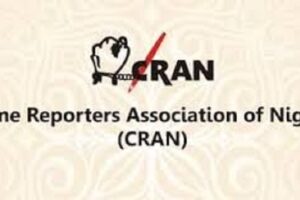
No fewer than 3.38 million trucks visited the Lagos Port Complex (LPC), the Tin-Can Island port and its environs in the last 57 months, with over N4 billion invested in the electronic truck call-up project since its inception.
This was disclosed in Lagos, yesterday, by the Managing Director, Trucks Transit Parks (TTP) Limited, Jama Onwubuariri.
TTP is Nigeria’s leading tech mobility company and operators of the ‘Eto’ electronic call-up system introduced by the Nigerian Ports Authority (NPA).
NPA introduced “Ètò”, an electronic call-up system, in February 2021 to manage the movement of trucks and address the severe traffic congestion around the Lagos Port Complex and Tin Can Island Ports.
The system has streamlined access to the ports and improved efficiency by scheduling truck movements digitally, eliminating human interference, and eliminated traffic gridlock within and around LPC and Tin-Can Island port.
Speaking during a Round Table organised by the firm, themed ‘From Gridlock to Growth: Re-Imagining Port logistics in Nigeria,’ Onwubuariri disclosed that the
company has invested over N4 billion in the electronic call-up project since its inception in 2021.
He explained that before the electronic call-up commenced in February 2021, the firm spent N2.4 billion on the Lillypond Terminal, where the electronic call-up operates from.
According to Mr. Onwubuariri, “We spent about N4 billion at the beginning in Lillypond Terminal.
“That was in the course of 20 months to implement the electronic call-up system at Lillypond Terminal. This happened before the call-up system commenced. That was the original investment.
“I do not have the details here as to how much more has been invested over time, but we know that the e-Tag solution, which we agreed to deploy for free, was to cost about N200 million to deploy.
“So, in total, I think we have invested up to N4.2 billion across board since inception.”
On areas of improving the system, the TTP Co-founder added that truckers still duplicate plate numbers, duplicate Terminal Delivery Order (TDO) and involved in stalling along the port access roads.
He further explained: “On the duplication of plate numbers, it is because of the porous nature of plate number administration in Nigeria. We don’t have a single authority that is responsible for producing number plates.
“So, some drivers seem to have this ability to go and use either another person’s number plate, or to duplicate their own number plate, or even to produce a number plate that does not exist and use it for the purpose of registering their vehicles or their trucks.
“One of the things TTP has done to stem this, while waiting for the longer-term solution is to develop what we call the electronic tagging system. This electronic tagging system ensures that each truck has a digital identity that does not change. That digital identity is also tamper-proof.
“So, we have developed the eTag system, and since 2023, we have been waiting for approval by the regulator for that eTag to be deployed. So, when the eTag is deployed, trucks will no longer be able to change their digital identity, either by using another person’s plate numbers or by faking a plate number and trying to use it to register on the system.
“Regarding TDO duplication, again, we have developed what is called the E-Call-Up Interchange Transaction Number (EITN). What this digital solution does is that when a terminal operator has called a truck to come into the port, it is mandated under that platform to only service the truck that it invited and not any other truck.
“So stalling, again, is an enforcement issue. A truck that has either lost its business because another truck that was closer to the port has picked up that cargo on its behalf, or instead of it, will now wait to find another business, thereby clogging the queue.”
Also speaking at the event, the Lagos State Commissioner of Transportation, Oluwaseun Osiyemi, said as Nigeria continues to navigate the complexities of its transportation and logistics networks, it is at a crucial juncture where innovative ideas and collaborative efforts can create pathways for growth and development, while transforming its port logistics from the challenges of gridlock to the opportunities for prosperity.
Osiyemi highlighted challenges such as congestion, inefficiency, and a lack of integrated systems that hinder the ports from reaching their full potential, noting that with the right partnerships, investment in technology, and a commitment to reform, the ports can be turned into thriving hubs of commerce that support not only the economy but also the seamless movement of goods across our great nation.
In his own presentation, the Chairman of the Association of Maritime Truck Owners (AMATO), Chief Remi Ogungbemi, warned that only people benefiting from the chaos and confusion that plagued the Lagos Port access roads before the electronic call-up implementation will call for the cancellation of the Eto contract.
“The electronic call-up has revolutionised port access since 2021. There are rooms for improvement, but definitely not a cancellation of the project. The electronic call-up has come to stay,” Ogungbemi stated.
The Chairman of the Nigerian Ports Consultative Council (NPCC), Bolaji Sunmola, who was represented by his Vice Chairman, Jean Anishere (SAN), lauded the electronic call-up and called for its sustainability if Nigerian ports must remain competitive and attractive for business.





